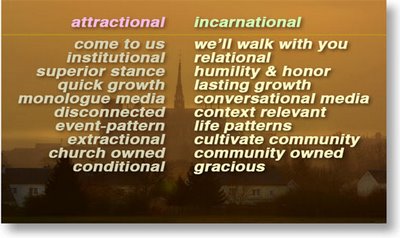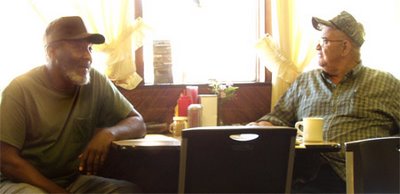
I'm currently working on a long-term development plan for a discipleship ministry. In the process of thinking through key directions, I feel God challenging me to examine our whole approach to discipleship, generally asking... why we don't disciple people the way Jesus did. I have been in ministry for over 30 years, but I have been stopped in my tracks over this, and I'm having a difficult time identifying any present day examples of discipling as Jesus did. Most church-based discipleship is classroom oriented. Even those more relational, one-on-one approaches are still quite formal, didactic, cognitive, or curriculum-based. Some mission-based approaches add experiential components, but could they be proposed across the board and effectively applied to all Christians in all walks of life?
I have four questions:
1) What were the essential qualities in the way Jesus discipled others?
2) Do you know of good, present-day examples/models in use?
3) Could we suggest a truly biblical model for today based on the clear example of Jesus in the four Gospels?
4) Is there any justification for our wholesale abandonment of Christ's own example?
For me this is not simply an academic exercise, since I am working on a plan that could impact the direction of a ministry. So I do hope there are some good answers to be found.
Here's one way to get at it... What if we first took what might be seen as the basics of good mentoring: 1) provide essentials and key principles, 2) dramatize and demonstrate in real life, 3) commission them to do it on their own, 4) provide evaluation, support, affirmation, and guidance to perfect, internalize, and integrate with personal life and calling.
And if we would say that the core ingredient of the enduring disciple was loving God (with a whole heart), then what could the discipleship process look like? Would the process look like anything we presently see? And how would you provide experiences that impart an authentic, enduring love of God?
Thoughts?
Michael
























